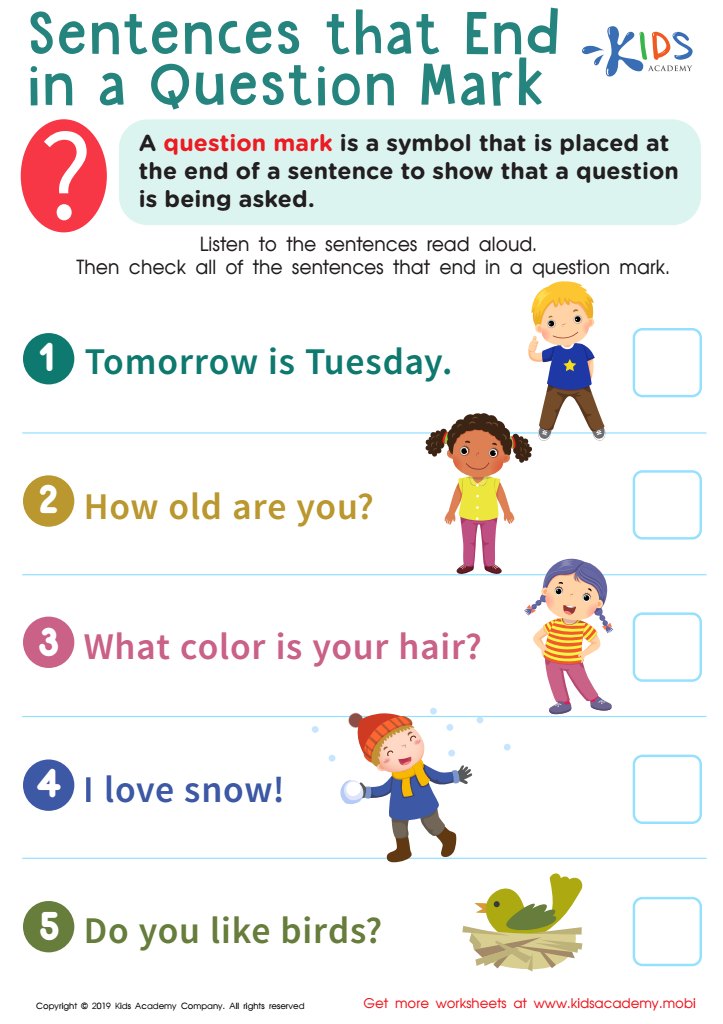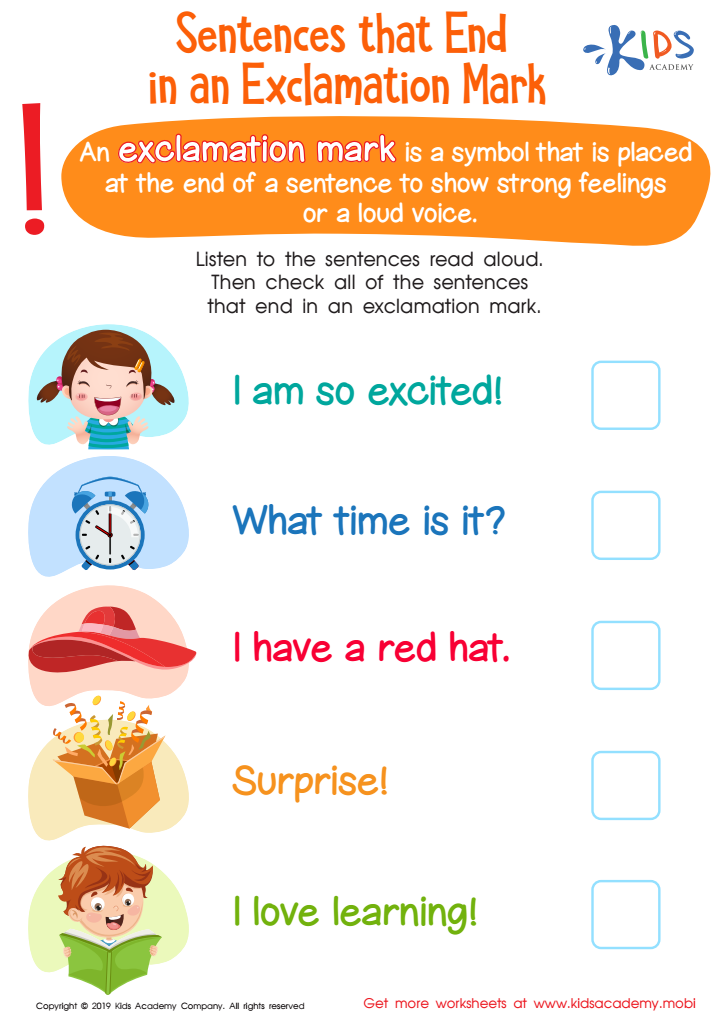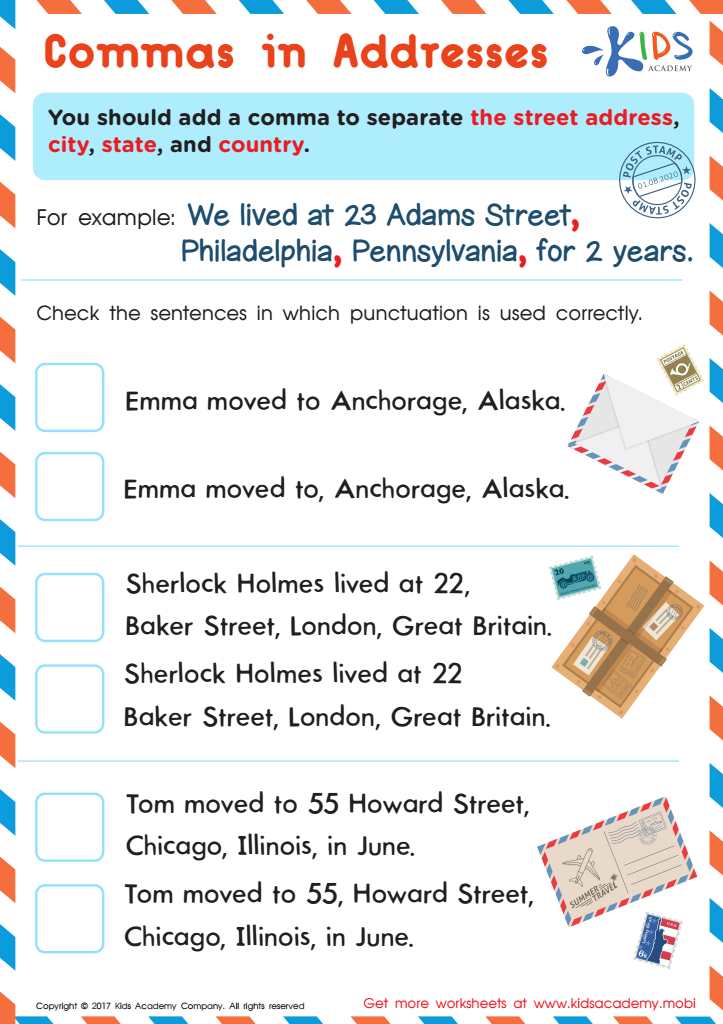Understanding punctuation Punctuation Worksheets for Ages 3-8
3 filtered results
-
From - To
Welcome to our "Understanding Punctuation" worksheets designed for children ages 3-8! Our interactive resources aim to make learning punctuation fun and engaging. Through a variety of creative activities, kids will grasp the importance of punctuation marks, like commas, periods, and question marks, in enhancing their writing skills. Each worksheet is tailored to different age levels, ensuring that each child can progress at their own pace. These worksheets not only build foundational writing skills but also promote comprehension and expression. Explore our collection to help your young learners become confident writers who understand the essential role of punctuation!


Sentences That End in an Question Mark Worksheet


Sentences That End in an Exclamation Mark Worksheet


Commas in Addresses Worksheet
Understanding punctuation is essential for children aged 3-8 as it lays the foundation for effective communication. For parents and teachers, mastering punctuation not only enhances reading skills but also boosts writing proficiency. Children in this age group are beginning to grasp the basics of language; introducing punctuation helps them understand the structure and flow of sentences.
When children learn about periods, commas, question marks, and exclamation points, they develop an awareness of pauses and emphasis in storytelling and conversation. This awareness enriches their reading experience, as they can decode stories and comprehend meaning more effectively. Additionally, learning punctuation encourages children to express their ideas clearly in writing, giving them the tools to organize thoughts and communicate feelings.
Moreover, a strong understanding of punctuation sets the stage for confidence in literacy as children progress through their educational journey. This early skill not only impacts academic performance but also fosters a lifelong love for reading and writing. Overall, when parents and teachers prioritize punctuation education, they equip children with essential skills that will support their development as proficient communicators. Engaging with punctuation at an early age is an investment in their future success.
 Assign to My Students
Assign to My Students





















